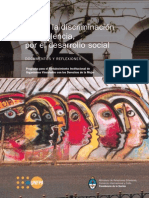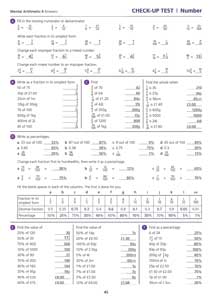An Introduction to text- to- speech synthesis. A Short Introduction to Text- to- Speech Synthesisby Thierry Dutoit. TTS research team, TCTS Lab.
Abstract. I try to give here a short but comprehensive introduction to state- of- the- art Text- To- Speech (TTS) synthesis by highlighting its Digital Signal Processing (DSP) and Natural Language Processing (NLP) components. As a matter of fact, since very few people associate a good knowledge of DSP with a comprehensive insight into NLP, synthesis mostly remains unclear, even for people working in either research area. After a brief definition of a general TTS system and of its commercial applications, in Section 1, the paper is basically divided into two parts. Section 2. 1 begins with a presentation of the many practical NLP problems which have to be solved by a TTS system.

- Pragmatics Books. Showing 1-50 of 117. Pragmatics (Paperback). (shelved 3 times as pragmatics) avg rating 3.92 — 158 ratings — published 1983.
- A central concern of the book is the relation between pragmatics and semantics, and Dr Levinson shows clearly how a pragmatic approach can resolve some of the problems semantics have been confronting and simplifying semantic analyses. The exposition is always clear.
- A central concern of the book is the relation between pragmatics and semantics, and Dr Levinson shows clearly how a pragmatic approach can resolve some of the problems semantics have been confronting and simplifying semantic analyses. The exposition is always clear and supported by helpful exemplification.
I then examine, in Section 2. I finaly give a word on existing TTS solutions, with special emphasis on the computational and economical constraints which have to be kept in mind when designing TTS systems. For a much more detailed introduction to the subject, the reader is invited to refer to my recently published book on TTS synthesis(Dutoit, 1. For a printable version of this text, see. Introduction. A Text- To- Speech (TTS) synthesizer is a computer- based system that should be able to read any text aloud, whether it was directly introduced in the computer by an operator or scanned and submitted to an Optical Character Recognition (OCR) system. Let us try to be clear. The Binding Of Isaac Free Full Game.
Register, or purpose of speech act. (See Levinson 1983: Chapter 2.) If pragmatics is ‘the study of linguistic acts and the contexts in which they are performed’ (Stalnaker 1972: 383), speech-act theory constitutes a central subdomain. It has long been recognized that the propositional content of utterance U can be.
There is a fundamental difference between the system we are about to discuss here and any other talking machine (as a cassette- player for example) in the sense that we are interested in the automatic production of new sentences. This definition still needs some refinements. Systems that simply concatenate isolated words or parts of sentences, denoted as Voice Response Systems, are only applicable when a limited vocabulary is required (typically a few one hundreds of words), and when the sentences to be pronounced respect a very restricted structure, as is the case for the announcement of arrivals in train stations for instance. In the context of TTS synthesis, it is impossible (and luckily useless) to record and store all the words of the language. It is thus more suitable to define Text- To- Speech as the automatic production of speech, through a grapheme- to- phoneme transcription of the sentences to utter. At first sight, this task does not look too hard to perform.
After all, is not the human being potentially able to correctly pronounce an unknown sentence, even from his childhood ? We all have, mainly unconsciously, a deep knowledge of the reading rules of our mother tongue. They were transmitted to us, in a simplified form, at primary school, and we improved them year after year. However, it would be a bold claim indeed to say that it is only a short step before the computer is likely to equal the human being in that respect.
Levinson Pragmatics Pdf Book Download
SKY Journal of Linguistics stylesheet Author(s’) name Title of the Paper: Subtitle of the Paper Abstract Abstract text is the same as “Body text”.
Despite the present state of our knowledge and techniques and the progress recently accomplished in the fields of Signal Processing and Artificial Intelligence, we would have to express some reservations. As a matter of fact, the reading process draws from the furthest depths, often unthought of, of the human intelligence.
A Short Introduction to Text-to-Speech Synthesis. TTS research team, TCTS Lab. I try to give here a short but comprehensive introduction.
Automatic Reading : what for ? Each and every synthesizer is the result of a particular and original imitation of the human reading capability, submitted to technological and imaginative constraints that are characteristic of the time of its creation.


Pragmatics Levinson Pdf
Pragmatics is a subfield of linguistics and semiotics that studies the ways in which context contributes to meaning. Pragmatics encompasses speech act theory. A brief history of twentieth-century linguistics. An introduction to the different ways that language can be studied, and the contributions of Saussure and Jakobson. Would you like to share the e-book or pdf form of brown and levinson's book? Chapter 1 The Success and Failure of Rational Choice The rational choice approach, despite widespread criticism, has reached a point of unrivaled prominence among. A Model of the Communication Process which describes the ways in which people (creators and consumers of messages) create and intepret messages using language and media. Andrew Moore's resource site for English teachers; free access to extensive teaching resources for English at KS3/4, GCSE and Advanced Level.
This paper is an endeavour to depict a holistic image of theories of politeness ranging from classic theories of politeness to the most up-to-date theories. New homepage of the French cognitive and social scientist Dan Sperber, with bio, links, and texts in English and French.
The concept of high quality TTS synthesis appeared in the mid eighties, as a result of important developments in speech synthesis and natural language processing techniques, mostly due to the emergence of new technologies (Digital Signal and Logical Inference Processors). It is now a must for the speech products family expansion. Potential applications of High Quality TTS Systems are indeed numerous.

Here are some examples : Telecommunications services. TTS systems make it possible to access textual information over the telephone. Knowing that about 7. Texts might range from simple messages, such as local cultural events not to miss (cinemas, theatres..

Queries to such information retrieval systems could be put through the user's voice (with the help of a speech recognizer), or through the telephone keyboard (with DTMF systems). One could even imagine that our (artificially) intelligent machines could speed up the query when needed, by providing lists of keywords, or even summaries. In this connection, AT& T has recently organized a series of consumer tests for some promising telephone services . They include : Who's Calling (get the spoken name of your caller before being connected and hang up to avoid the call), Integrated Messaging (have your electronic mail or facsimiles being automatically read over the telephone), Telephone Relay Service (have a telephone conversation with speech or hearing impaired persons thanks to ad hoc text- to- voice and voice- to- text conversion), and Automated Caller Name and Address (a computerized version of the . These applications have proved acceptable, and even popular, provided the intelligibility of the synthetic utterances was high enough. Naturalness was not a major issue in most cases. Language education.
High Quality TTS synthesis can be coupled with a Computer Aided Learning system, and provide a helpful tool to learn a new language. To our knowledge, this has not been done yet, given the relatively poor quality available with commercial systems, as opposed to the critical requirements of such tasks. Aid to handicapped persons. Voice handicaps originate in mental or motor/sensation disorders. Machines can be an invaluable support in the latter case : with the help of an especially designed keyboard and a fast sentence assembling program, synthetic speech can be produced in a few seconds to remedy these impediments. Astro- physician Stephen Hawking gives all his lectures in this way.
The aforementioned Telephone Relay Service is another example. Blind people also widely benefit from TTS systems, when coupled with Optical Recognition Systems (OCR), which give them access to written information. The market for speech synthesis for blind users of personal computers will soon be invaded by mass- market synthesisers bundled with sound cards. DECtalk (TM) is already available with the latest Sound. Blaster (TM) cards now, although not yet in a form useful for blind people.
Talking books and toys. The toy market has already been touched by speech synthesis. Many speaking toys have appeared, under the impulse of the innovative 'Magic Spell' from Texas Instruments. The poor quality available inevitably restrains the educational ambition of such products. High Quality synthesis at affordable prices might well change this.
Vocal Monitoring. In some cases, oral information is more efficient than written messages. The appeal is stronger, while the attention may still focus on other visual sources of information. Hence the idea of incorporating speech synthesizers in measurement or control systems. Multimedia, man- machine communication. In the long run, the development of high quality TTS systems is a necessary step (as is the enhancement of speech recognizers) towards more complete means of communication between men and computers.
Multimedia is a first but promising move in this direction. Fundamental and applied research. TTS synthesizers possess a very peculiar feature which makes them wonderful laboratory tools for linguists : they are completely under control, so that repeated experiences provide identical results (as is hardly the case with human beings). Consequently, they allow to investigate the efficiency of intonative and rhythmic models.